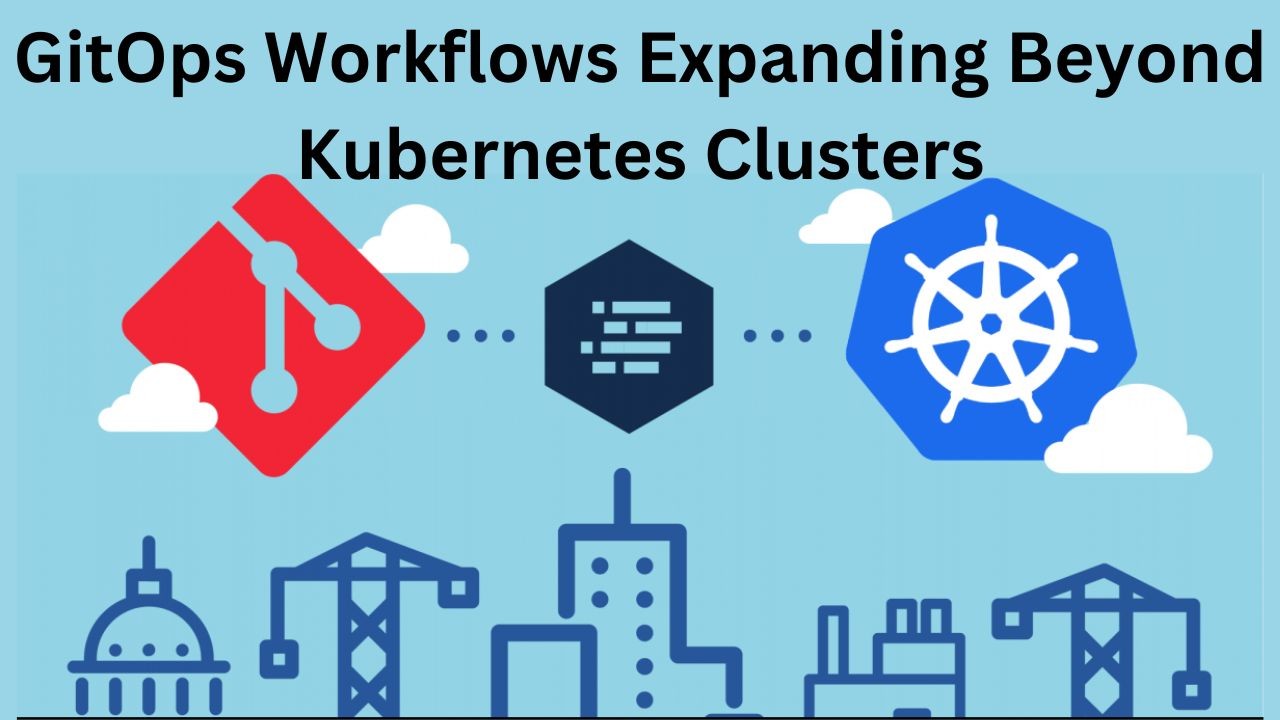
GitOps Workflows Expanding Beyond Kubernetes Clusters. Subscribe to get the latest updates on container-native & DevOps news here.
The Headlines
GitOps Workflows Expanding Beyond Kubernetes Clusters
Flux software has officially graduated to become a mature project with the Cloud Native Computing Foundation (CNCF). The pace at which organizations embrace GitOps best practices should accelerate. GitOps defines a declarative approach for pulling software from a repository in a way that is both continuously reconciled and immutable.
Most of the adoption of GitOps thus far has coincided with the adoption of Kubernetes clusters that expose a standard set of application programming interfaces (APIs) that make it simpler to deploy code.
Weaveworks CEO Alexis Richardson said the next frontier for GitOps would be to integrate the controllers within platforms such as Flux with other controllers. More work must be done to make GitOps workflows accessible to developers directly from within the integrated development environments (IDEs) they use to create software, he adds.
By more loosely coupling CI and CD processes, it should, in theory, become easier for more organizations to automate the delivery of software. The current manual processes used to install software on platforms today simply don’t scale. There’s no doubt there’s a GitOps learning curve, but, like it or not, most organizations won’t allow a growing backlog of applications waiting to be deployed.
Tutorials & Guides
Introduction to Cloud Infrastructure Technologies
As companies become increasingly dependent on cloud infrastructure to deliver products and services as efficiently as possible, it can be overwhelming to keep up with all the technologies available today. This free, self-paced course will give you a fundamental understanding of today’s top open-source cloud technology options.
Introduction to Kubernetes on Edge with k3s
There is a growing interest in running software at the edge. This course takes a deep dive into the use cases and applications of Kubernetes at the edge using examples, labs, and a technical overview of the K3s project and the cloud-native edge ecosystem.
DevSecOps practices are an extension to standard DevOps practices, focusing on automating security and incorporating it as part of the process, which includes continuous delivery, infrastructure-as-code (IaC), and observability. The use of DevSecOps results not only in delivering safer code faster, but also facilitates early feedback to developers, helping them build more reliable software. This course explores implementing DevSecOps practices into the software delivery pipeline using open-source software.
Top Reading Recommendations
Advocating for workload-centric over infrastructure-centric development
To increase developer productivity and experience, a developer- and workload-centric approach is suggested. This blog examines the “why” in further detail and uses it as a springboard for discussion and the creation of a product vision that the community can work toward.
Data Mesh vs Data Fabric: a tale of two new data paradigms
Data is one of the most critical components of any business, as it allows us to personalize and customize our products for potential consumers. As important as data is, studies have shown that about 50–70% of the data collected by organizations goes unused and becomes what Gartner calls “dark data.” We can attribute this large amount of unused data to the inefficiencies in the systems that manage it.
Events
CNCF Online Programs
- Solve config drift across environments with Score | Wed, Dec 14, 9:00 AM (PST)
- How do mature DevOps teams manage software security? | Dec 15 - 16, 12:00 AM (PST)
- Nephio Project Overview & Demo | Dec 15 - 16, 12:00 AM (PST)
DevOps Jobs
- Infosys hiring DevOps Engineer - Apply
- IBM is looking for AWS Cloud FullStack - Apply
- Software Engineer II, Full Stack, Google Cloud at Google - Apply